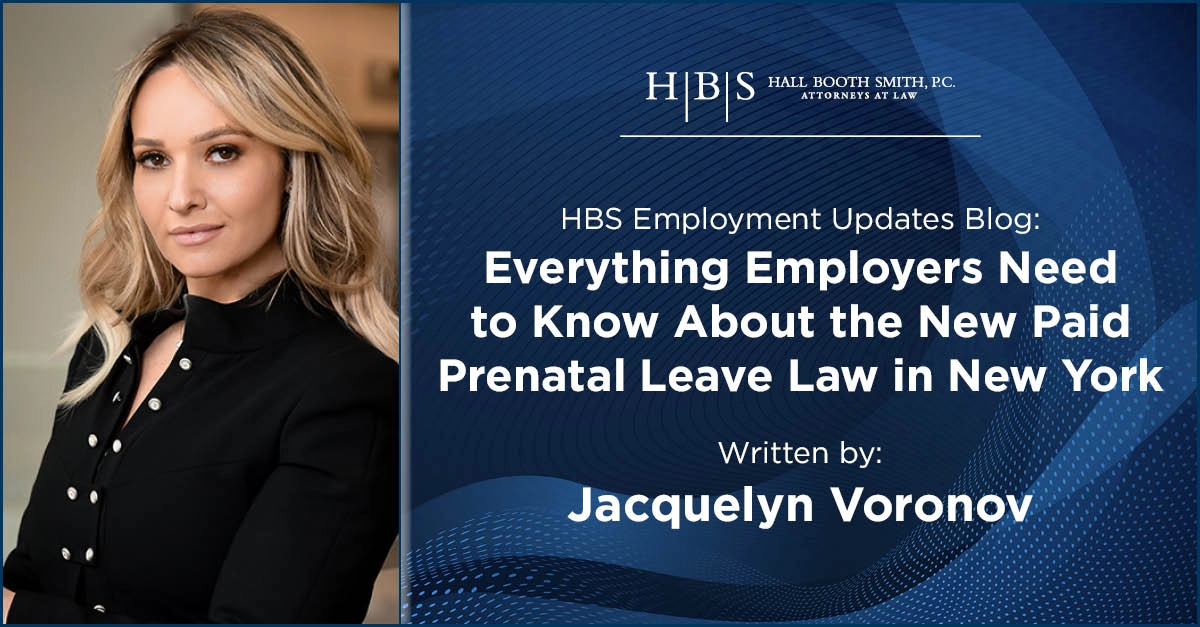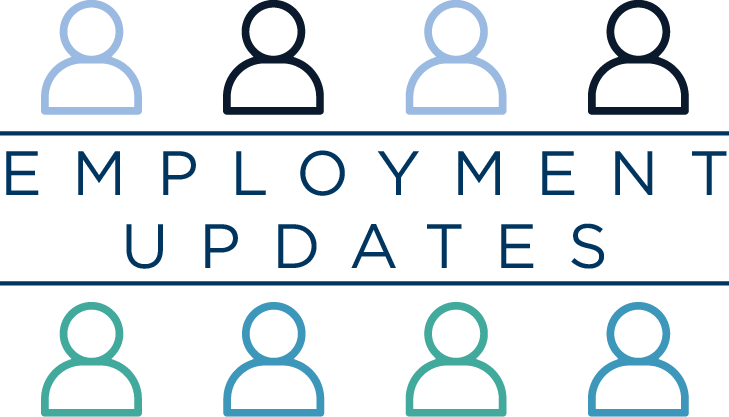
Everything Employers Need to Know About the New Paid Prenatal Leave Law in New York
The first of its kind, a paid prenatal leave law, is here, and while it’s great news for soon-to-be parents, it comes with responsibilities employers will want to get right. In this article, we break down all the must-know details, so you’re prepared to support your team and stay compliant.
What is the Paid Prenatal Leave Law and When Does it Go Into Effect?
An amendment to New York Labor Law Section 196-b, the state’s paid sick leave law, will go into effect on January 1, 2025. The amendment requires New York employers to provide employees with 20 hours of paid prenatal leave during any 52-week period.
General Information and FAQ:
Who is covered by the Paid Prenatal Leave Law?
All employees working for private-sector employers. Private-sector employers include persons, corporations, limited liability companies, or associations employing any individual in any occupation, industry, trade, business, or service, regardless of part-time status and overtime exempt status. There is no requirement that an employee have a certain length of service or full-time status. That means part-time employees, temporary employees, and even paid interns may be eligible for paid prenatal leave.
Does employer size matter?
- No, all private-sector employees are covered regardless of size.
What Health Care Services Are Covered?
- Paid prenatal leave may be taken for “health care services received by an employee during their pregnancy or related to such pregnancy, including physical examinations, medical procedures, monitoring and testing, and discussions with a health care provider related to the pregnancy.”
Can an employer use a more generous sick leave or PTO policy to satisfy this requirement?
- No. Paid prenatal leave is a separate leave benefit and in addition to existing leave entitlements such as paid sick and safe leave, paid family leave, and leave under the Family and Medical Leave Act.
Can employees be required to exhaust their other available paid time off benefits before using paid prenatal leave?
- No. Employees can choose whether to use their paid prenatal leave before or after their other available paid time off benefits, including their New York paid sick leave.
Does an employee accrue Paid Prenatal Leave?
- No, all employees automatically have 20 hours of Paid Prenatal Leave per year after January 1, 2025.
Can employees use paid prenatal leave for postnatal or postpartum events?
- No.
Does this law apply to fertility treatment or care appointments, including in vitro fertilization?
- Yes.
Does this law apply to end-of-pregnancy care appointments?
- Yes.
Can employers require a doctor’s note?
- No. Employers cannot require verification of an employee’s eligibility for paid prenatal leave or other documentation of an employee’s need for the absence.
Are employees required to submit medical records or documents to their employer?
- No, and employers cannot ask employees to disclose confidential information about their health condition(s) as a condition of requesting to use Parental Leave.
Is the “52-week period” for purposes of calculating the 20-hour cap equal to a calendar year?
- No. The “52-week period” is measured looking forward from the first time that an employee uses paid prenatal leave.
When does a 52-week period begin each year?
- The first time the employee uses Paid Prenatal Leave begins the 52-week period for that employee. An employee may use Paid Prenatal Leave on more than one pregnancy per year, but only 20 hours are available in a 52-week period. Any Paid Prenatal Leave hours remaining from the first pregnancy may be used during the second pregnancy if the second pregnancy is within the same 52-week period.
Do brand new employees have Paid Prenatal Leave?
- Yes, the law does not require employees to accrue Paid Prenatal Leave or work for an employer for a minimum amount of time before accessing Paid Prenatal Leave.
Does an employee need to be pregnant in order to be eligible for this benefit?
- No. As noted previously, employees can use paid prenatal leave for fertility treatment or care appointments. However, only the person who is seeking to become pregnant will be eligible.
Can spouses, partners, or other support persons use Paid Prenatal Leave to attend prenatal appointments with a pregnant person?
- No, Paid Prenatal Leave may only be used by the employee directly receiving prenatal health care services.
What if an employee needs more than 20 hours of leave or requests a different type of accommodation?
- Employees may have additional options provided by other laws. Utilizing Paid Prenatal Leave does not preclude employees from asserting rights under other laws. As an example, employees should review the federal Pregnant Workers Fairness Act.
At what rate should paid prenatal leave be paid?
- The employee’s “regular rate of pay” or the applicable minimum wage, whichever is greater.
Do I have to pay this benefit out if my employee does not use it?
- No, if an employee separates from the employer, then the employer has no obligation to pay the employee for unused Paid Prenatal Leave hours.
New York employers should review their implementation plans for this new benefit and update and publish their relevant leave policies to reflect compliance with the statute prior to January 1, 2025.
For more information on the implications for employers or how to ensure compliance, please contact Jacqueline Voronov at jvoronov@hallboothsmith.com or any member of Hall Booth Smith’s Labor and Employment Service Group.
Disclaimer
This material is provided for informational purposes only. It is not intended to constitute legal advice, nor does it create a client-lawyer relationship between Hall Booth Smith, P.C. and any recipient. Recipients should consult with counsel before taking any actions based on the information contained within this material. This material may be considered attorney advertising in some jurisdictions. Prior results do not guarantee a similar outcome.
Blog Overview
About the Author
Jacqueline Voronov
T: 201.221.7014
E: jvoronov@hallboothsmith.com
Jacqueline Voronov’s litigation experience includes the defense of employers in single and multi-plaintiff actions on claims of wrongful discharge, sexual harassment, race, national origin, gender, disability, pregnancy and age discrimination, breach of restrictive covenants, family medical leave, failure to accommodate, retaliation, wage/hour laws, and related tort claims.




Leave a comment
You must be logged in to post a comment.